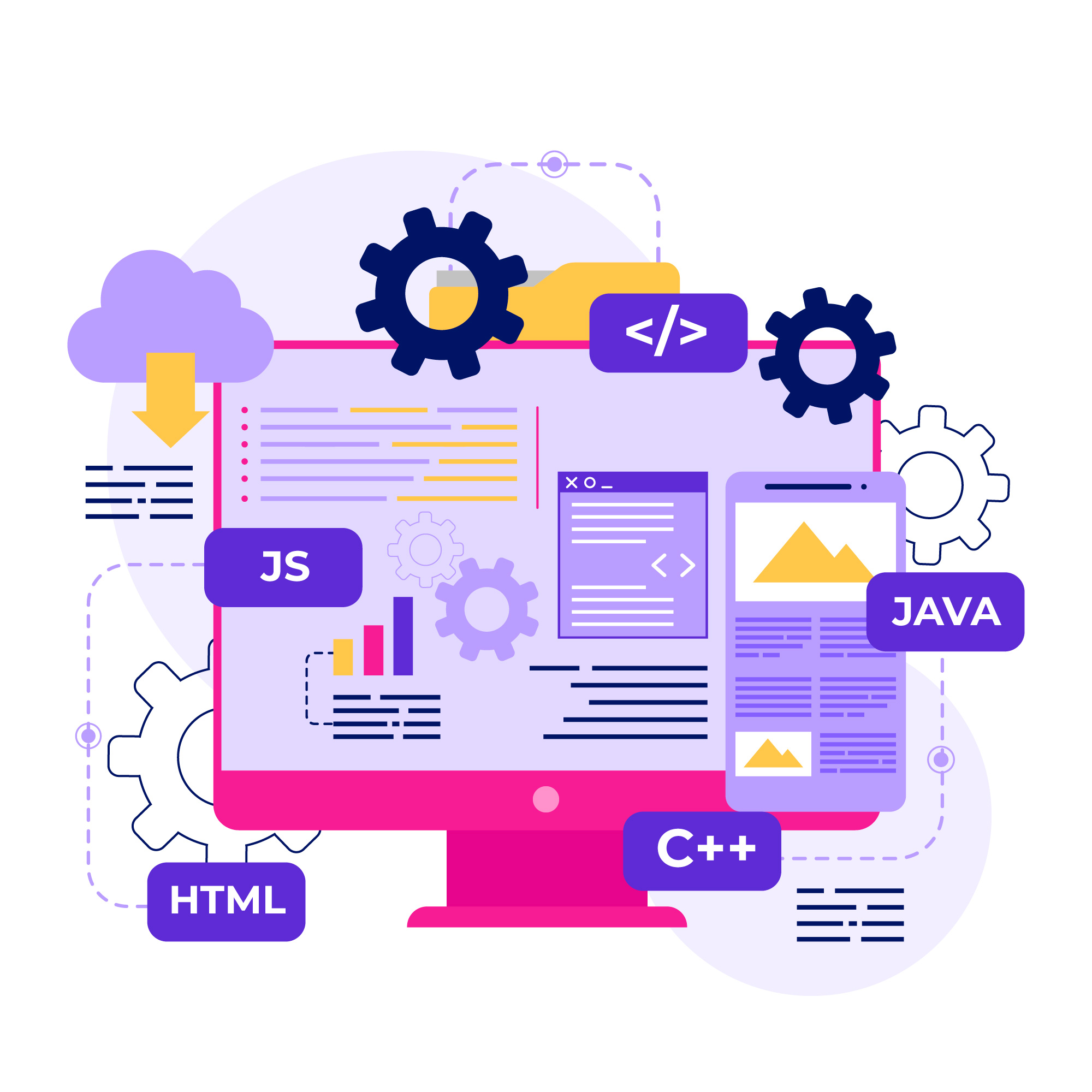Laravel vs WordPress: A Complete Comparison Guide

Strong 8k brings an ultra-HD IPTV experience to your living room and your pocket.
If you are stuck in the middle of this debate, this blog is just for you. These PHP-based solutions have triggered endless debates about which is better. While both enjoy considerable fan bases and dominate the web development industry, comparing them to find the better one will be an exercise in futility. Instead, let us focus on the purpose each serves so we know which framework to pitch for different web development projects. Let’s begin.
WordPress vs. Laravel Comparison of Core Service Offerings
There has been much written about what is WordPress and what is Laravel. So we will not start with that. We will get straight to the point and check out how they perform on certain key metrics. Then leverage this understanding to make a better choice in forthcoming web development projects. So here are the critical metrics we will focus on.
Core Architecture and Philosophy
Laravel
Let’s first take up Laravel's MVC, Model-View-Controller, framework approach. It separates app logic into:
- The Model deals with data and business logic
- The View manages the presentation layer
- The Controller coordinates between Model and View and processes user input
Advantages of the MVC architectural approach include:
- Better core organization
- Reusability
- maintainability
Further, Laravel's object-oriented programming approach emphasizes clean, expressive syntax that makes code more readable. Its features like Eloquent ORM, Artisan CLI, and comprehensive testing tools prioritize developer experience, making Laravel very popular with web development companies in USA.
WordPress
WordPress offers a CMS-centric design, prioritizing content management and user accessibility. Its plugin and theme architecture give web developers ample flexibility of extensive customizations without modifying the core files. This design philosophy democratizes publishing, making WordPress-based websites accessible to users regardless of their technical knowhow. An intuitive admin interface, visual content editing facilities and ease of use further make WordPress accessible and cost-effective.
Where they differ
The difference lies in their use. Laravel is designed for custom application development and gives developers complete control over the app’s architecture. WordPress is focused on content management and publishing, providing a structured environment with established conventions and patterns.
Technical Foundation and Requirements
Laravel
What does the Laravel tech stack look like? Typically, Laravel requires more server resources and technical configuration compared to standard CMS installations like:
- PHP 8.1 or higher
- Composer for dependency management
- Supports multiple database systems like MySQL, PostgreSQL, SQLite, and SQL Server
- Development environment tools like Laravel Homestead, Valet, or Docker containers
Advantage of laravel–it integrates seamlessly with modern development workflows, including version control systems, continuous integration, and deployment pipelines.
WordPress
WP has minimal technical requirements. Its lightweight nature makes it a perfect match for shared hosting environments and budget-conscious projects. Key technical requirements include:
- PHP 7.4 or higher
- MySQL 5.7 or MariaDB 10.3
WordPress installation typically involves uploading files and running a simple configuration wizard. Its database structure typically uses a standardized schema with tables for posts, users, comments, and metadata, enabling easy migrations and plugin compatibility across different installations.
Where they differ
Laravel requires a more robust hosting environment with command-line access and dedicated or VPS hosting with SSH access. WordPress leverages basic shared hosting plans.
Development Experience and Learning Curve
Laravel
- Artisan command-line interface for all code generation, database migrations, and task scheduling.
- Migrations for version control database changes and seeders to populate test data.
- PHPUnit for testing and supporting test-driven development practices.
- Composer for integrating third-party libraries seamlessly.
- Packages like Cashier for subscription billing, Passport for API authentication, and Scout for full-text search.
WordPress
- Focuses on themes for presentation and plugins for functionality.
- Hook system so WordPress web developers can modify behavior without altering core files.
- Custom post types and fields extend content management capabilities beyond posts and pages.
- Prioritizes working with the template hierarchy, understanding the loop for displaying content, and utilizing WordPress functions and APIs.
- Provides extensive documentation and coding standards for consistent development practices.
Where they differ
Laravel web development requires solid PHP knowledge, understanding of MVC patterns, and familiarity with modern development practices. It has a steeper learning curve, but once web developers master Laravel, they are richly rewarded with powerful tools and flexibility.
WordPress’s learning curve is gentler for content-focused websites. But advanced WordPress Web development requires an understanding of WordPress-specific concepts, security best practices, and performance optimization techniques.
Performance and Scalability
Laravel
Built-in caching mechanisms, including Redis and Memcached support, offer excellent app performance. Other Laravel features like query optimization tools, eager loading for database relationships, and queue systems for background processing further help to improve performance. The catch–performance is heavily dependent on proper optimization and server configuration.
WordPress
WordPress performance varies significantly based on theme quality, plugin usage, and hosting environment. For example, poorly coded themes or excessive plugins can severely impact performance. However, caching plugins and CDNs significantly improve WordPress performance.
WordPress vs Laravel performance
With both offering good performance options, how to know which one is right for your project? By looking at their scalability options. For example, Laravel applications can scale horizontally through load balancing and database clustering. Its architecture also supports microservices and API-first development approaches.
But while WordPress can handle substantial traffic with proper optimization, scaling often requires specialized hosting solutions and careful plugin management.
Security Framework Analysis
Laravel
Offers comprehensive security features, including CSRF protection, SQL injection prevention, and XSS protection. Its built-in authentication and authorization systems, password hashing, and input validation come by default and follow industry best practices.
WordPress
WordPress is vulnerable to cyberattacks. While WordPress offers basic security features, additional protection can be obtained through security plugins and reputable hosting providers. Keeping its themes, core and plugins updated also improves WP security.
Where they differ
Laravel security is primarily managed through framework updates and dependency management. WordPress requires frequent attention to plugin updates, theme security, and monitoring for vulnerabilities across multiple components.
Development Ecosystem and Community
Laravel
- Robust ecosystem complete with official packages, community contributions, and extensive documentation
- Access to thousands of PHP libraries
- Highly active community, hosting regular conferences, podcasts, and educational resources
WordPress
- Largest ecosystem in web development landscape
- Availability of abundant resources, tutorials, and community support
- Presence of extensive documentation, forums, and third-party educational content
Where they differ
WordPress has a larger user base, providing more diverse resources and solutions. Laravel's community is more focused on modern development practices and enterprise-level solutions.
Customization and Flexibility
Laravel
Unlimited customization possibilities with support offered for custom database schemas, unique user interfaces, and integration with any third-party service or API.
WordPress
Extensive customization is possible, but it often requires working within WordPress's established patterns and conventions. Further advanced customization may require custom plugin development or theme modifications.
Where they differ
Laravel offers superior flexibility for unique requirements, while WordPress provides structured flexibility within its content management framework.
Primary Use Cases and Applications
Laravel Ideal Scenarios
- Excels in custom web application development requiring unique business logic and complex functionality
- Perfect for RESTful APIs, SaaS applications, enterprise-level solutions, and complex e-commerce platforms
- Shines in projects requiring integration with multiple external services, complex business workflows, or advanced user management systems
WordPress Best Applications
- Best for content-heavy websites, blogs, news sites, and marketing websites
- Excellent for small to medium business websites, portfolio sites, and e-commerce stores using WooCommerce
- Ideal for projects with limited budgets, tight timelines, or when extensive customization isn't required
- Excels in rapid prototyping and quick deployments
Use Case Decision Matrix
Choose Laravel when you need:
- Custom functionality
- Have complex business requirements
- Require unique UXs
Opt for WordPress when:
- Content management is primary
- Budget is limited
- Non-technical users will manage the site
Conclusion
There is no end to this WordPress vs Laravel comparison. They are unique in different ways, and as mentioned above, their use cases also differ. So, when you have to choose either of these for web app development, select the one that aligns with your project requirements.
Note: IndiBlogHub features both user-submitted and editorial content. We do not verify third-party contributions. Read our Disclaimer and Privacy Policyfor details.







